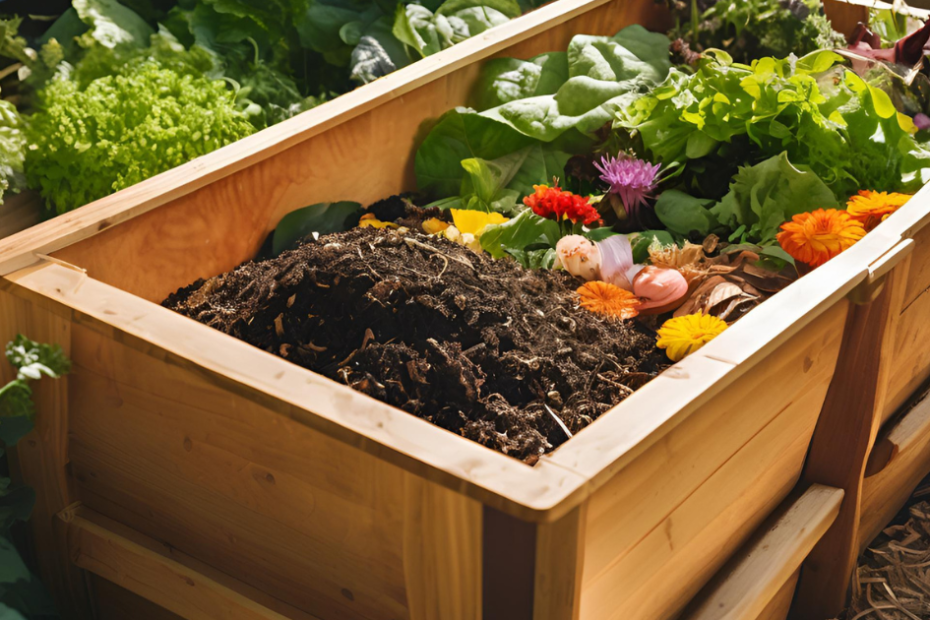Did you know the average American household throws away 32% of its food waste, contributing to landfill methane emissions? Home composting is your secret weapon to slash waste, save money, and supercharge your garden—all while fighting climate change. Whether you’re in a suburban backyard or a tiny apartment, this guide will transform you into a composting pro. Let’s dig in!
Why Compost? More Than Just Waste Reduction
- Cut Landfill Waste: 28% of U.S. landfill content is compostable (EPA).
- Free Fertilizer: Compost adds nitrogen, phosphorus, and potassium to soil—no chemicals needed.
- Fight Climate Change: Composting reduces methane, a greenhouse gas 25x stronger than CO₂.
- Healthier Plants: Compost-enriched soil retains 2.5x more water (USDA study).
Pro Tip: “Composting is like brewing coffee for your plants—it turns scraps into black gold!” — Lisa Nguyen, Urban Gardener (Portland, OR).
How Composting Works: Science Made Simple
Composting relies on a balance of two ingredients:
- Greens (Nitrogen-Rich): Fruit peels, veggie scraps, coffee grounds, fresh grass.
- Browns (Carbon-Rich): Dry leaves, cardboard, newspaper, wood chips.
The Magic Ratio: 2 parts browns to 1 part greens. Too many greens? Expect a smelly mess. Too many browns? Decomposition slows.
Step-by-Step Guide to Start Composting
1. Choose Your Composter
| Type | Best For | Cost |
|---|---|---|
| Tumbling Bin (e.g., FCMP) | Quick results; pest-proof | 100–100–250 |
| DIY Wooden Bin | Backyard gardeners | 20–20–50 |
| Bokashi System | Apartments; handles meat/dairy | 60–60–120 |
| Worm Bin (Vermicompost) | Small spaces; educational | 30–30–80 |
Apartment Hack: Use a lidded 5-gallon bucket with drilled holes (under $10).
2. Layer Like a Pro
- Base Layer: Twigs or straw for airflow.
- Alternate Greens/Browns:
- 2” coffee grounds + 4” shredded newspaper.
- 1” veggie scraps + 2” dry leaves.
- Top Layer: Always finish with browns to deter pests.
3. Maintain Your Pile
- Aerate Weekly: Stir with a pitchfork or tumbler handle.
- Check Moisture: Should feel like a damp sponge. Add water if dry; browns if soggy.
- Speed It Up: Chop scraps into 1” pieces.
Cold Climate Tip: Insulate bins with straw or bubble wrap in winter.
What Can You Compost? (US-Friendly List)
✅ Greens: Coffee filters, tea bags, eggshells, bread.
✅ Browns: Toilet paper rolls, nut shells, cotton towels.
🚫 Avoid: Meat (attracts rats), glossy paper, pet waste.
City-Specific Rules:
- Seattle: City bins accept meat/dairy.
- NYC: No compostable bags in curbside bins.
Read also: 7 Best Organic Fertilizers for Your Garden
Troubleshooting Common Issues
| Problem | Solution |
|---|---|
| Bad Odors | Add browns; aerate. |
| Fruit Flies | Bury food scraps under 6” of soil. |
| Slow Decomposition | Chop smaller; add coffee grounds. |
| Raccoons | Secure lid with bungee cords. |
When Is Compost Ready?
- Look: Dark, crumbly texture.
- Smell: Earthy (like forest soil).
- Time: 2–6 months (faster in warm states like CA/TX).
Test It: Bag a handful for 3 days. If it stinks, wait longer.
How to Use Compost
- Gardens: Mix 1–3” into soil pre-planting.
- Potted Plants: 25% compost + 75% potting mix.
- Lawns: Sprinkle ¼” layer to revive dead patches.
Pro Tip: Sell extra compost on Facebook Marketplace—$10/bucket!
FAQs: Your Composting Queries Solved
Q: Can I compost in winter?
A: Yes! Use insulated bins or bokashi (works indoors).
Q: Are compostable plastics OK?
A: No—most need industrial facilities. Stick to natural materials.
Q: How to compost without a yard?
A: Try vermicomposting (worms in a bin) or community gardens.
Q: Do I need fancy tools?
A: A shovel and bucket work. Upgrade later!
Where to Buy Supplies in the US
- Compost Bins: Home Depot, Lowe’s, Amazon.
- Worms: Uncle Jim’s Worm Farm (online).
- Bokashi Kits: Bokashi Living ($89 starter kit).
Join the Composting Revolution!
Share your compost journey on Instagram with #CompostHeroes—tag us for a chance to be featured. Ready to turn trash into treasure? Start today and watch your garden—and the planet—thrive! 🌎
